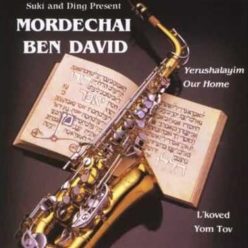Just One Shabbos (And We’ll All Be Free!)
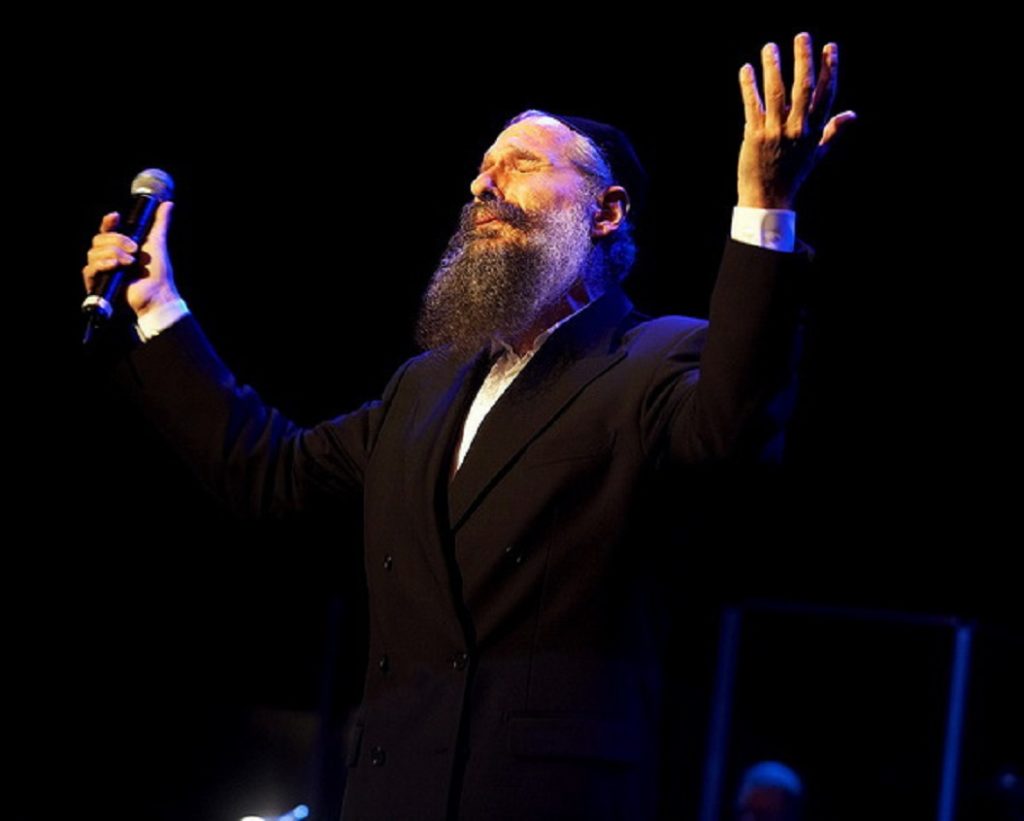

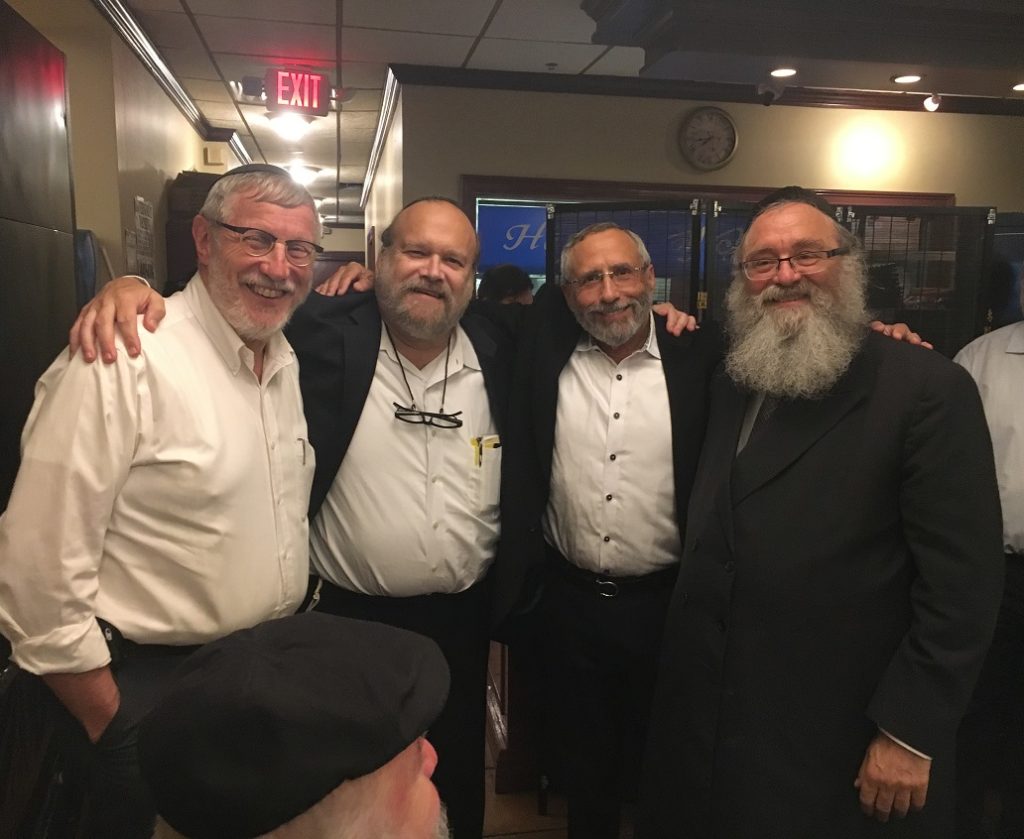
It all started when Back in September of 1967 Shmuel (Shmelkie) Brazil from Boston and I (Yossi Toiv) from the Bronx had the hashgachah to end up as roommates in a basement in Far Rockaway when Rav Shlomo Freifeld zt”l opened his yeshivah Sh’or Yoshuv. Shmelkie played guitar and was always composing niggunim. Over the next few years he had written such classics as “Bilvavi ” “Shmelkie’s Niggun ” “Eileh Varechev ” and “Shir Hamaalos ” while I had written a few English and Yiddish songs (“Oh The World ” and “Aleh Yidden”)
Ready for our own At that time The Rabbi’s Sons and Simchatone had released best-selling record albums. Shmelkie’s songs were really catching on and were starting to be played at weddings and everyone began telling us to put out a record of our own.
I remember when the leader of a top orchestra at that time came to our yeshivah one day and offered Shmelkie $400 for the rights to “Shmelkie’s Niggun.” He refused but that’s when we realized we had to cut our own album.
Seeing the Light
I came up with the name Ohr Chodosh while davening one Shabbos and then we got the two best voices in the yeshivah Yussie Lieber and Nachum Deutsch to join us. We had no money so Shmelkie and I each borrowed $1 000 from our parents — eventually paid back — and enlisted Josh Goldberg who led a popular orchestra to arrange and produce. The album was released in 1971 became a smash hit and led to calls for concerts. Reb Shlomo discouraged Shmelkie from performing though so Yussie Nachum and I hit the road.
Our first performance was at the Pioneer Country Club. Over the years we were on stage at Carnegie Hall Town-Hall Felt Forum/Madison Square Garden Queens College Brooklyn College and in Toronto at one show MBD even opened for us!
Those great compositions
One afternoon Shmelkie came running breathlessly into our room humming a song. He grabbed his guitar and started singing as he tried to figure out the chords. A few minutes later he sang me his new niggun — it had no words and no name but I was blown away.
He introduced it to the yeshivah and everybody loved it. Whenever Reb Shlomo wanted to hear it he would tell us to sing “Shmelkie’s Niggun” — and the name just stuck. By the way we heard that it was banned from being played in a certain yeshivah summer camp because they felt it was an “Afrikanisheh niggun” — they felt the rhythm was too much and made people “vild.”
One night an older beis medrash bochur came into our basement apartment while Shmelkie was playing guitar. He pulled out a small folded piece of paper with some hand-written Hebrew words on it and handed it to Shmelkie. He said “Why don’t you try writing a tune to these words? I heard them from the Rosh Yeshivah (Rav Yitzchak Hutner ztz”l).”
By the end of the night Shmelkie had composed “Bilvavi”— a song for the ages.
Old Days New Ways
Rav Shmuel Brazil became a maggid shiur in Sh’or Yashuv and is now the beloved rosh yeshivah of Ziv Hatorah in Givat Ze’ev outside Jerusalem. In 1983 together with Abish Brodt he produced the first Regesh album (they’re now up to Volume 11) and over the years he’s composed hundreds of songs.
Rabbi Yussie Lieber is a popular rebbi at Hebrew Academy of Long Beach. He still strums a mean guitar.
Nachum Deutsch is a successful business executive and much sought-after chazzan in Monsey.
And me? Well I still write funny songs make people smile and along with my lifelong country-compadre Heshy Walfish am working on some exciting new projects. Stay tuned!
(Originally featured in Mishpacha Issue 688)
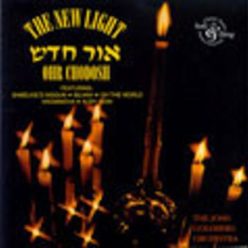
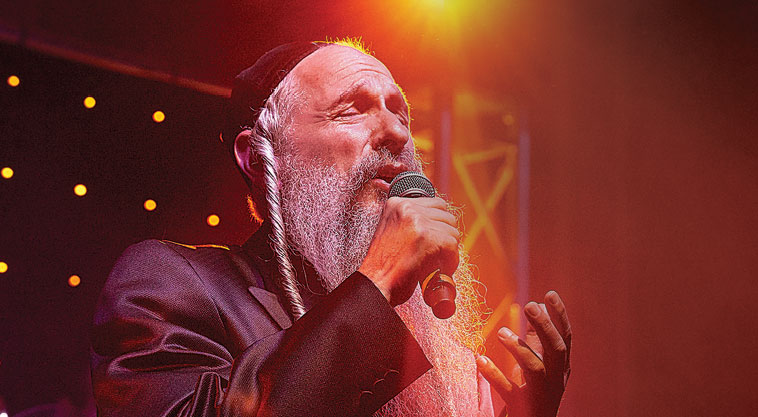
Back in 1973, a young man named Mordechai Werdyger slipped on to the Jewish music scene with a little-known album called Original Chassidic Melodies. While that early album never took off, listeners sat up when they heard Mordechai Ben David’s next album, Hineni, the following year. The magic of his new-old musical style and the sheer power of his voice soon won a place right at the heart of the frum soundtrack.
For over four decades, we’ve sung and danced, swayed and prayed, to hundreds of iconic MBD songs, the ones he wrote himself and those collaborations he made famous. And now we’ve asked our readers:
Which one of Mordechai Ben David’s songs has touched your life?
Shmuly Lowenthal, Brooklyn | “Torah Hakedoshah” (Maaminim Bnei Maaminim, 2001)
My pick is “Torah Hakedoshah,” and here’s why: Some of my family and I were very close to Rav Yisroel Belsky ztz”l. After he was niftar, we went to daven at his kever on Har Hamenuchos, and then we sang “Torah Hakedoshah,” a song that captured our deep emotions and our connection to him. We just all broke down and cried as we thought about our beloved rebbi. Rebbi was all about the Torah, and he made it a beautiful song — “hashirah hazos” — for all of us. Then there’s the beautiful tune, and MBD’s voice. Overpowering.
MBD'S TAKE
“Harav Belsky ztz"l was a Torah giant with a brilliant mind in all aspects of life. I had the honor and priviledge to spend an entire unforgettable Succos with him in LA one year. May he be a meilitz yosher for all his talmidim and for all of Klal Yisrael.”
(Originally featured in Mishpacha, Issue 738)
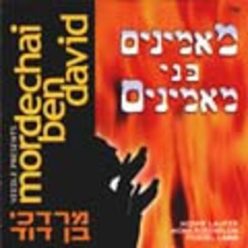


Back in 1973, a young man named Mordechai Werdyger slipped on to the Jewish music scene with a little-known album called Original Chassidic Melodies. While that early album never took off, listeners sat up when they heard Mordechai Ben David’s next album, Hineni, the following year. The magic of his new-old musical style and the sheer power of his voice soon won a place right at the heart of the frum soundtrack.
For over four decades, we’ve sung and danced, swayed and prayed, to hundreds of iconic MBD songs, the ones he wrote himself and those collaborations he made famous. And now we’ve asked our readers:
Which one of Mordechai Ben David’s songs has touched your life?
Avraham Binyamin, Ashdod | “Shema Yisrael” (Hineni, 1974), “Shiru Lamelech” (Kumzitz, 2003)
Growing up in a traditional Yemenite home in the 1980s, I was first attracted to Mordechai Ben David’s songs that I would hear from the porches of my neighbors. Though I was just a young boy from a non-Torah home, something inside me was stirred and I was inspired. Something about his voice and songs connected me to David Hamelech, who I knew about from my elderly Teimani uncles, and these songs became part of the journey back to an authentic Torah life. The songs I felt most connected to were his classic “Shema Yisrael,” and later, “Shiru Lamelech.” I’m still singing them to my three young children, the oldest with his long flowing Yeminite peyot.
MBD'S TAKE
“I learned ‘Shiru Lamelech’ from my son Yeedle who always brought us the best music. This one was written by Rabbi Hillel Paley and was the lead song on Yeedle’s album of the same name. May he continue bringing us great songs to inspire and uplift us. Bottom line, we’re so fortunate that we’re able to sing praise to Hashem.”
(Originally featured in Mishpacha, Issue 738)
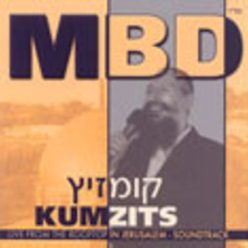

Back in 1973, a young man named Mordechai Werdyger slipped on to the Jewish music scene with a little-known album called Original Chassidic Melodies. While that early album never took off, listeners sat up when they heard Mordechai Ben David’s next album, Hineni, the following year. The magic of his new-old musical style and the sheer power of his voice soon won a place right at the heart of the frum soundtrack.
For over four decades, we’ve sung and danced, swayed and prayed, to hundreds of iconic MBD songs, the ones he wrote himself and those collaborations he made famous. And now we’ve asked our readers:
Which one of Mordechai Ben David’s songs has touched your life?
Avraham Binyamin, Ashdod | “Shema Yisrael” (Hineni, 1974), “Shiru Lamelech” (Kumzitz, 2003)
Growing up in a traditional Yemenite home in the 1980s, I was first attracted to Mordechai Ben David’s songs that I would hear from the porches of my neighbors. Though I was just a young boy from a non-Torah home, something inside me was stirred and I was inspired. Something about his voice and songs connected me to David Hamelech, who I knew about from my elderly Teimani uncles, and these songs became part of the journey back to an authentic Torah life. The songs I felt most connected to were his classic “Shema Yisrael,” and later, “Shiru Lamelech.” I’m still singing them to my three young children, the oldest with his long flowing Yeminite peyot.
MBD'S TAKE
“I learned ‘Shiru Lamelech’ from my son Yeedle who always brought us the best music. This one was written by Rabbi Hillel Paley and was the lead song on Yeedle’s album of the same name. May he continue bringing us great songs to inspire and uplift us. Bottom line, we’re so fortunate that we’re able to sing praise to Hashem.”
(Originally featured in Mishpacha, Issue 738)
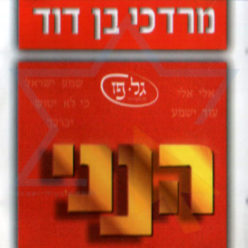

Back in 1973, a young man named Mordechai Werdyger slipped on to the Jewish music scene with a little-known album called Original Chassidic Melodies. While that early album never took off, listeners sat up when they heard Mordechai Ben David’s next album, Hineni, the following year. The magic of his new-old musical style and the sheer power of his voice soon won a place right at the heart of the frum soundtrack.
For over four decades, we’ve sung and danced, swayed and prayed, to hundreds of iconic MBD songs, the ones he wrote himself and those collaborations he made famous. And now we’ve asked our readers:
Which one of Mordechai Ben David’s songs has touched your life?
T.D., Baltimore, MD | “Mah Ashiv” (Hallel, 1987; and Kumzitz, 2003)
When I was diagnosed with a rare disease, although it was not life-threatening, it was definitely life-alerting. Driving back from the hospital that day, I said, “Ma, I need to go home. Don’t drive me to work.” My mind was racing faster than the blowing snow on that winter day. At home, I turned on music. “Ma Ashiv” filled my room, and I cried and sang Hallel — it was Rosh Chodesh. The song’s words were soothing, but the depth and meaning of the tune gave it even more power. “Ana Hashem ki ani avdecha,” I sang. “Please, Hashem, answer me, be here with me through this, because I am Your servant.” For years since that day, through medical appointments, flying around the world in a quest for answers to this medical challenge, through the hard days of my younger siblings’ weddings, and through the emotional turmoil of this journey, I learned to connect to Hashem, deeply, in a real way, as I ask Him to answer me, because I am His servant. And I also learned to be grateful — as the song finishes so beautifully — “Halleluka.”
MBD'S TAKE
“This song, composed by Rabbi Aviezer Wolfson, became a Rosh Chodesh anthem in many communities worldwide, especially in Eretz Yisrael. Ma ashiv l’Hashem? How can I repay Hashem for the bountiful kindness he has bestowed upon me? Even when we go through trials and tribulations in life we can always find things to be grateful and thankful for. And that’s what Dovid Hamelech expressed and taught us in this beautiful tefillah.”
(Originally featured in Mishpacha, Issue 738)
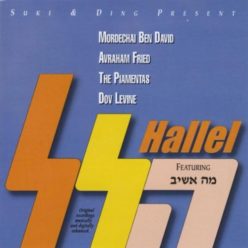

Back in 1973, a young man named Mordechai Werdyger slipped on to the Jewish music scene with a little-known album called Original Chassidic Melodies. While that early album never took off, listeners sat up when they heard Mordechai Ben David’s next album, Hineni, the following year. The magic of his new-old musical style and the sheer power of his voice soon won a place right at the heart of the frum soundtrack.
For over four decades, we’ve sung and danced, swayed and prayed, to hundreds of iconic MBD songs, the ones he wrote himself and those collaborations he made famous. And now we’ve asked our readers:
Which one of Mordechai Ben David’s songs has touched your life?
N.L., Brooklyn, NY | “Yaaleh” (Tze’aka, 2017)
I would like to share one impact of MBD’s recent “Yaaleh.” I am the teacher of five-year-old Esty, who suffers from developmental delays and a severe speech disorder. This beautiful little girl has a life replete with frustrations and misery because of her inability to care for her own needs. It’s heart-wrenching to watch her sobbing when she cannot express or communicate her desires, without any means of calming her down. That was until I turned on the song “Yaaleh.” The song’s soft and gentle tone has the power to comfort the inconsolable. The soothing words are calming and reassuring even to a child who cannot express her pain. This song acts as a magic pain reliever for Esty, who has learned to articulate the word “Yaaleh” when she feels she needs to calm down.
MBD'S TAKE
“Wow, very touching story. In fact, this song has touched so many hearts, especially during the Yamim Noraim, as it was being sung in many shuls throughout the Jewish world on Kol Nidre night.”
(Originally featured in Mishpacha, Issue 738)


Back in 1973, a young man named Mordechai Werdyger slipped on to the Jewish music scene with a little-known album called Original Chassidic Melodies. While that early album never took off, listeners sat up when they heard Mordechai Ben David’s next album, Hineni, the following year. The magic of his new-old musical style and the sheer power of his voice soon won a place right at the heart of the frum soundtrack.
For over four decades, we’ve sung and danced, swayed and prayed, to hundreds of iconic MBD songs, the ones he wrote himself and those collaborations he made famous. And now we’ve asked our readers:
Which one of Mordechai Ben David’s songs has touched your life?
Yosef Eisen, Lakewood | “Hineni” (Hineni, 1974)
Even after repeatedly hearing “Hineni” for 40 years, the last stanza still sends chills down my spine and brings tears to my eyes: Our forefathers smiled as they died in peace / But the cries they began will never cease / The words they cried shook the heavens above / They said Hineni, we are here with love.
When Bilaam blessed the Jewish people, he said, “May my death be that of the righteous and my end like them.” The highest aspiration of a Jew should be to arrive in Heaven and shout out, “I am here with love!”
MBD'S TAKE
“This song was written in 1972 at the request of Rebbetzin Esther Jungreis a”h, as she embarked on her mission to spread the light of Hashem and ignite the spark of light in every Yiddishe neshamah, with the founding of the ‘Hineni’ organization. She traveled the world with the passionate messages she so eloquently delivered, bringing so many lost souls back to their roots.”
(Originally featured in Mishpacha, Issue 738)


Back in 1973, a young man named Mordechai Werdyger slipped on to the Jewish music scene with a little-known album called Original Chassidic Melodies. While that early album never took off, listeners sat up when they heard Mordechai Ben David’s next album, Hineni, the following year. The magic of his new-old musical style and the sheer power of his voice soon won a place right at the heart of the frum soundtrack.
For over four decades, we’ve sung and danced, swayed and prayed, to hundreds of iconic MBD songs, the ones he wrote himself and those collaborations he made famous. And now we’ve asked our readers:
Which one of Mordechai Ben David’s songs has touched your life?
K.P. | “Al Tisyaesh” (Tomid B’Simcha, 1994)
During a three-year battle with cancer, my mother a”h once visited a cosmetician in Manhattan who dealt specifically with the effects of chemotherapy. The woman, a young Israeli baalas teshuvah, was also a cancer survivor, and she taught my mother MBD’s song, “Al tityaesh... ki mei’Hashem tivakesh... afilu cherev chadah munachat al tzavaro shel adam.” The false eyelashes that the cosmetician applied to my mother’s eyelids didn’t survive the evening, torn off by her curious toddler, but the song she sang fueled her throughout the remainder of her battle.
MBD'S TAKE
“This song was composed by Mona Rosenblum at the bedside of a young cancer patient in Gush Katif, and it has given hope and strength not only in a medical crisis but in the shidduch crisis as well. It teaches us never to lose hope even in the most dire situations.”
(Originally featured in Mishpacha, Issue 738)
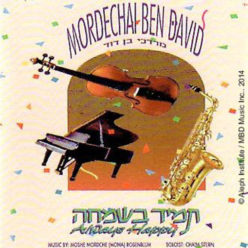

Back in 1973, a young man named Mordechai Werdyger slipped on to the Jewish music scene with a little-known album called Original Chassidic Melodies. While that early album never took off, listeners sat up when they heard Mordechai Ben David’s next album, Hineni, the following year. The magic of his new-old musical style and the sheer power of his voice soon won a place right at the heart of the frum soundtrack.
For over four decades, we’ve sung and danced, swayed and prayed, to hundreds of iconic MBD songs, the ones he wrote himself and those collaborations he made famous. And now we’ve asked our readers:
Which one of Mordechai Ben David’s songs has touched your life?
Ari B., UK | “Daddy Dear” (Yerushalayim Our Home,1988; The English Collection, 1998)
It’s a tough question, but I would go with “Daddy Dear,” particularly the version recorded on The English Collection. Hearing Mordechai singing with a child soloist, as a dialogue, it’s easy to imagine a father comforting his child, assuring him that there will come a time when Hashem’s cup of tears will be full. It never fails to move me, and was my go-to song during one particularly hard period in my life.
MBD'S TAKE
It is indeed one of my all-time favorites. Based on an eloquent medrash, it truly expresses the love Hashem has for all of us, and how He acutely feels our pain and suffering.”
(Originally featured in Mishpacha, Issue 738)
